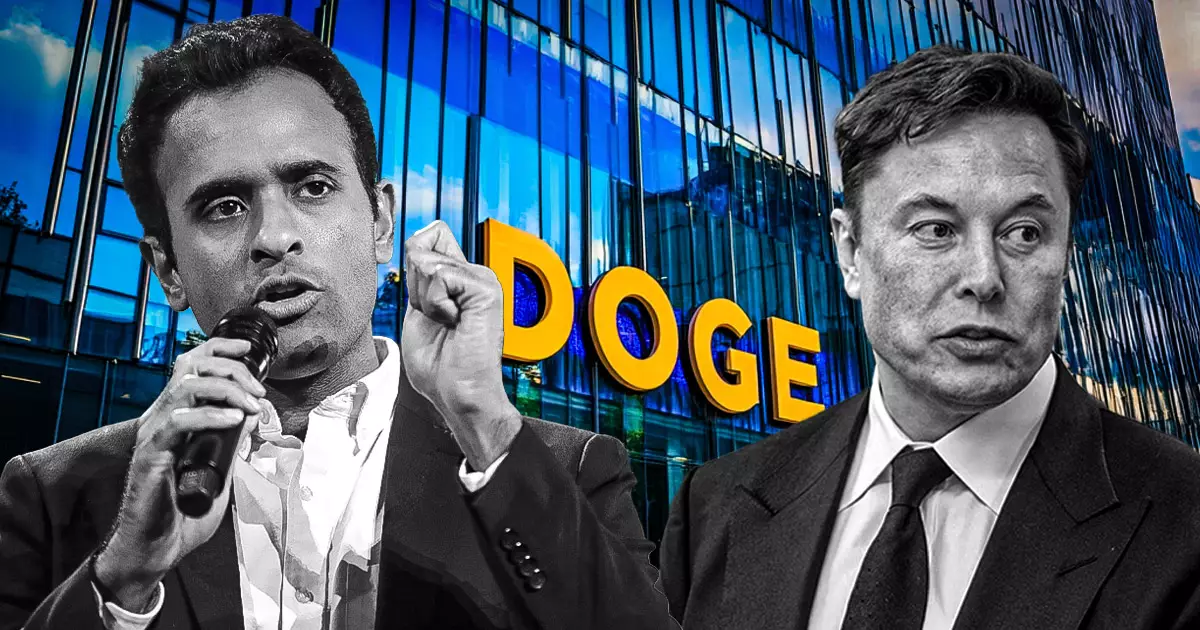The recent announcement by US President-elect Donald Trump regarding the formation of a new initiative, the Department of Government Efficiency (DOGE), represents a notable intersection of politics and technology. Appointing tech luminary Elon Musk and former presidential candidate Vivek Ramaswamy to spearhead this initiative promises to attract significant attention not only in political circles but also in the rapidly evolving world of cryptocurrency. With its ambitious aim of eliminating government waste and streamlining processes, DOGE appears poised to tackle some of the long-standing inefficiencies that have plagued the federal system.
Aiming for Dramatic Reforms
On November 13, Trump presented DOGE as a critical element of his “Save America” agenda, likening it to the monumental Manhattan Project, which aimed to develop nuclear weapons during World War II. By drawing this parallel, Trump sets a formidable tone for his proposed reforms, asserting that DOGE’s goal is nothing short of revolutionary. He has articulated an intention to cut excess regulations and reduce the monumental $6.5 trillion federal budget—claims that resonate with many who see government inefficiency as a source of ongoing frustration. However, the feasibility of such grand aspirations raises questions. Can a new department truly streamline such an enormous budget and dismantle deeply ingrained bureaucratic practices?
What sets DOGE apart from traditional governmental bodies is its promise of transparency and public involvement. Elon Musk, actively engaged in various tech companies, has previously championed open communication and innovation. In his announcement, he emphasized that DOGE would maintain open channels for public feedback, urging citizens to report inefficiencies and suggest cuts to wasteful spending. Ramaswamy further echoed this sentiment, highlighting the importance of citizen participation in governmental reform. This fresh approach aims to transcend the typical barriers between the government and the public, paving the way for a more inclusive dialogue about expenditure and resource allocation.
Interestingly, the choice to name the department “DOGE” has resonated particularly well with the Dogecoin community, igniting enthusiasm and a cultural connection to the cryptocurrency landscape. However, the initial reaction of the market suggests ambivalence; despite the excitement surrounding DOGE, Dogecoin’s price experienced a significant decline. This paradox underscores the volatility of cryptocurrency markets, which can swing dramatically based on public sentiment and news cycles. Analysts speculate that while Musk’s involvement might hint at favorable conditions for Dogecoin, the market remains inherently unpredictable.
As Trump, Musk, and Ramaswamy take steps to unfold DOGE’s plan for a more streamlined government, the initiative stands at a crossroads. With a promise of both reform and engagement from the public, DOGE could potentially represent a watershed moment in American governance. However, whether this unveil will translate into meaningful policy changes or merely serves as a political spectacle remains to be seen. As excitement grows, vigilance is needed to ensure that the aspirations set forth by DOGE do not dissolve into mere rhetoric but instead catalyze real transformation within the government’s framework.


Leave a Reply